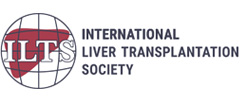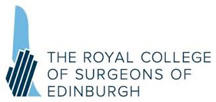Open Cholecystectomy
What is Cholecystectomy?
Cholecystectomy is the surgical removal of the gallbladder. The gallbladder is a small, hollow organ situated below the liver. Bile juice produced by the liver is stored in the gall bladder and transported to the small intestine through ducts for the digestion of fats.
Indications for Cholecystectomy
A cholecystectomy is recommended by your doctor if you are suffering from gallbladder conditions including gallstones in the bile duct or the gallbladder, gallbladder infection, gallbladder cancer, or inflammation of the pancreas, all of which are unresponsive to antibiotics or other treatments.
Preparation for Surgery
Your doctor performs a physical exam to locate the site of pain and inflammation. Your doctor may order abdominal X-rays, MRI, abdominal ultrasound or endoscopy (visualization with an endoscope, a thin fiber-optic device).
Inform your doctor of the medicines you are taking and those you should stop taking prior to the procedure. Advise your doctor if you are allergic to any medicines or anesthesia. You are required to stop smoking and drinking alcohol at least a week before the surgery. You must not eat or drink anything 6-8 hours before the surgery. Cleansing of your intestine will be performed with an antiseptic solution before the surgery.
Cholecystectomy Procedure
The procedure involves the following steps:
- The surgery is performed under general anesthesia.
- You will lie on your back (supine position).
- Your surgeon makes an incision in the upper abdomen.
- The tissues and muscles are carefully pulled back to reveal your gallbladder.
- Your surgeon isolates the gall bladder duct (cystic duct) and artery.
- The gallbladder is separated from the liver and carefully removed.
- The incision is closed and a bandage is applied.
- You will be discharged a few days after the surgery.
Recovery after Surgery
Following the surgery, your surgeon may recommend that you follow certain measures for a successful outcome:
- Keep the surgical area clean and dry.
- Pain medicines or NSAIDs (non-steroidal anti-inflammatory drugs) are prescribed to manage pain.
- Your surgeon may give you activity restrictions, such as not to lift heavy objects.
- Eat a healthy diet. You are advised to get out of bed and move around as soon as possible, safely.
- Regularly follow-up with your surgeon.
- Begin exercise under the guidance of your doctor.
- You should be able to return to work after approximately 6 weeks.
Complications of Surgery
Open surgery is associated with complications including:
- Pain, infection, and bleeding
- Formation of blood clots
- Injury to the bile duct
- Chest infection
- Diarrhea and fat malabsorption
- Damage to the liver
- Chest infection
- Inflammation of the abdomen





